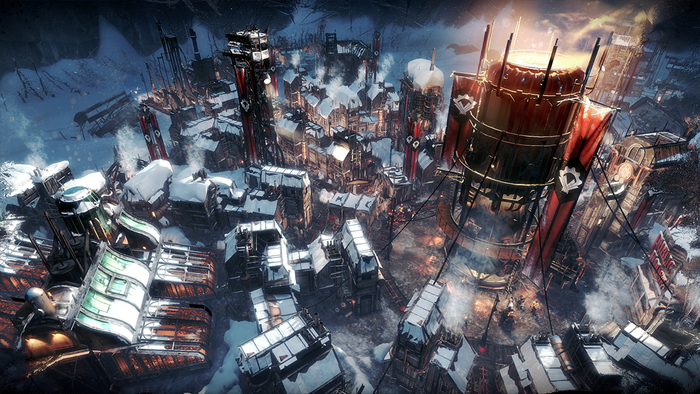
Featured Blog | This community-written post highlights the best of what the game industry has to offer. Read more like it on the Game Developer Blogs.
Fan entitlement is an issue for more than just those tired of seeing comments threads descend into irrational vitriol. There's a danger that so-called 'die-hard' fandom encourages an industry of incremental sequels and cynical HD re-releases.

‘Fandom’ is a curious thing. Fans become passionately attached to a game, to a franchise, to a developer, even to a hardware manufacturer, often to the point that they begin to view the object of their fandom as more than just a form of entertainment. It becomes something personal for them, and when something becomes personal, any sense of rationality regarding that thing can become impaired.
In my time, I’ve been a Playstation fan, a Final Fantasy fan, a JRPG fan in a broader sense, a console game fan, and a fan of numerous other things besides. Note that when I use ‘fan’ here, I mean it in the personal, jealous, ‘how dare they release Metal Gear on Xbox’ sense. I still like all of the things I used to be a fan of, to varying degrees, but now I like to think I can judge them by their objective qualities rather than by some blind sense of ownership.
Perhaps it’s just because I got older. Perhaps it’s because I had to watch companies that I used to pledge allegiance to make some unarguably bad decisions, and was unable to rationally square these decisions with my own fandom. Perhaps it’s just because I don’t take videogames so seriously these days. But I stopped being a fan of things. And when you follow videogames and videogame culture, which is steeped in often alarming levels of fandom, you start to realise something. Fandom is pretty childish.
Not only is it childish, but it’s fiercely conservative, and if allowed to affect actual decisions within the industry, it could be actively dangerous to the progression of the medium.
Examples lie strewn across the internet in all sorts of crazy petitions. It has become impossible to mention games like DmC, Silent Hill: Book of Memories or Metal Gear Rising: Revengeance without the comments section filling up with the ranting of ‘die hard’ series fans. Sometimes they just want to spit hatred, other times they attempt to rationally explain this hatred, to justify their opinion that these games should not exist because they are not similar enough to previous entries in the series.
It’s an issue of entitlement. When a videogame series stops being just a form of entertainment and becomes something of greater personal meaning, a sense of ownership is kindled. Fans feel that they in some way own a franchise. This sense of ownership will cause them to argue far beyond the point of reason to defend a beloved franchise, but can also reverse into a terrible backlash against the developers, the people who actually own the franchise, should they decide to take the franchise in a direction the fanbase does not approve of.
Much talk is given of a developer ‘betraying’ their fans, of ‘owing’ something to their fanbase, of ‘real’ series (that is, the entries in the series that the fans approve of) and of the ‘true spirit’ of a franchise (which is also often ‘betrayed’ by ‘uncaring’ developers.) These dialogues speak of these fans’ sense of ownership, entitlement, and the betrayal they feel when a series moves in a direction they feel is untrue to the sacred cow of their beloved franchise.
Jim Sterling recently made the argument that the only thing that should matter when a new game in a series is released is whether or not that game is actually good. It’s an argument that is rationally difficult to fault. And still, comments rolled in attempting to justify arguments to the contrary, often quite well thought out arguments, explaining how, while these views may be right in a broad sense, the new DmC/ the Silent Hill spinoff/3D Fallout is still a travesty.
The primary argument seems to be that by changing the direction of a franchise, developers are somehow invalidating or diminishing the games that came before. It’s an argument that claims that the issue is not the quality of the new title, but the fact that it is different at all. These fans are not worried about whether the new DmC will be any good or not; to them, this is unimportant. What matters to them is that the very difference between this game and the old (‘real’) Devil May Cry games means that they will never see another game that is just like their particular favourite, no more games in the ‘true’ Devil May Cry series.
The argument becomes not ‘I don’t believe this game should exist because it doesn’t look as good as previous titles in the series’, but ‘I don’t believe this game should exist because it’s not exactly the same as previous entries in the series.’
Now, I will defend to the death a person’s right to dislike something for any reason they choose, but that doesn’t stop me from believing that disliking a thing on principle because it’s not Just Like The Old Ones is a damn stupid reason to dislike something.
I suppose the question I’d ask at this point is, how many entries in a series are enough? How many games should there be that are Just Like The Old Ones before taking the series in a new direction becomes acceptable? The sentiment is evidently that four Devil May Cry games are not enough, so how many is enough? Five? Ten? Thirty?
Videogames must change, or become stagnant. This is true of the medium as a whole, and of any particular franchise. Hell, it’s true of every damn medium, anywhere. If all developers remained ‘true’ to the ‘real spirit’ of their franchises, then games would not have developed much past Pong.
I always try to make the point that new entries in a series do not suddenly make the beloved old ones obsolete. The fact that Final Fantasy XIII-2 is a turd doesn’t make Final Fantasy IX any less of a classic (citation: personal opinion). DMC3 is not going to suddenly disappear, or become rubbish, just because the new DmC is moving in a different direction.
The answer I get from fans is that this isn’t good enough. They are not content to replay the series classics; they want new games, but new games that are exactly like the series classics. Anything else is ‘betraying’ the ‘spirit’ of the franchise.
This is an extraordinarily narrow-minded view of the games medium. It’s entitled and selfish, conservative if not actively regressive. It’s also a very human reaction; at its heart lies good old fear of change.
Fans love the ‘classic’ titles, love them to a point that anything different must be something that they automatically cannot love as much. If the original was so great, then ‘different’ must be ‘worse’. It’s understandable, when you consider how personally connected some people feel to these games, but that doesn’t stop it from being a stupid argument.
‘Different’ is good. We need different, we need change, lots of it, for the industry to grow. And no, new does not always mean better, but that’s beside the point. Fearing and denying change can only lead to stagnation, to an industry in which innovation takes a back seat to yearly franchise iterations and cynical HD re-releases.
Hopefully, that’s something that all of us apart from perhaps the die-hardiest of fans want to avoid. Hopefully, developers will continue to ignore the cries of those that call themselves ‘fans’ in favour of moving the industry forward.
Read more about:
Featured BlogsAbout the Author(s)
You May Also Like







